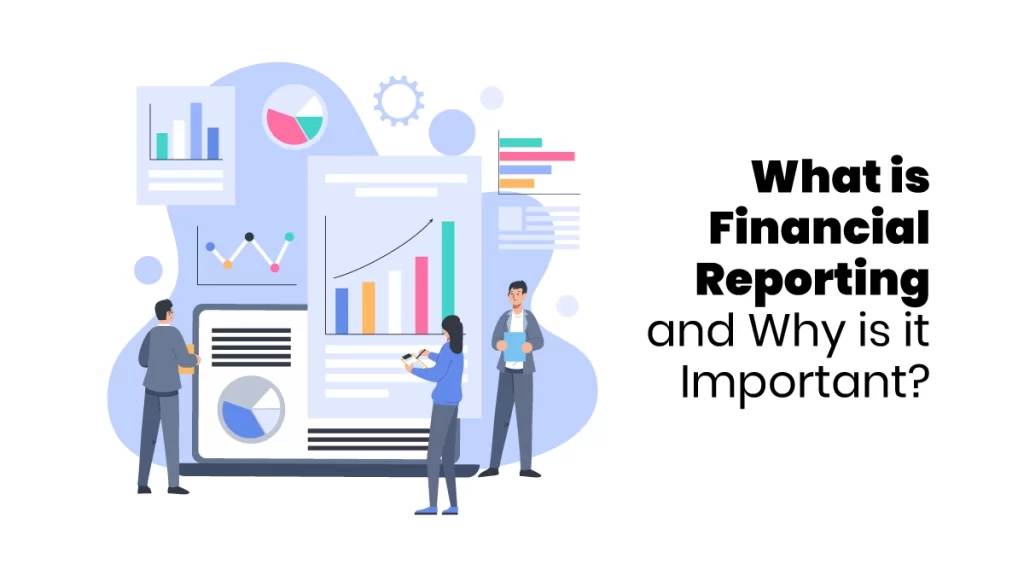Some people may argue that financial reporting isn’t necessary because at present most countries require it by law. Every company, from small to large companies, should prepare finance reports properly for internal and external uses. Time can be taken to prepare for finance reports but it helps the management share the company’s financial health with people like stakeholders, investors, and lenders.
With financial reports, companies would be able to follow accounting rules set by tax authorities. They’d also miss out on useful information about their financial performance, spending patterns, and trends. The proper accounting training gives you the knowledge to prepare accurate financial reports.
What is Financial Reporting?
Financial reporting is a detailed review of a company’s financial data over a specific period, typically a month, quarter, or year. The purpose is to provide decision-makers with insights to help improve business performance and outcomes.
This reporting helps managers make smart decisions about the business. It also helps investors and banks to decide whether they want to put money into the company or loan money to the company.
Types of Financial Reports
Here some of the types of financial reports are given below;
Balance Sheets
Show what the company owns (assets), what it owes (liabilities), and the value for shareholders (equity) at a specific time.
Income Statements
Explain how the company earns and spends its money over a period.
Cash Flow Statement
Reveal how the company manages its cash, including spending on short-term and long-term investments.
Statements of Shareholders’ Equity
Detailed changes in the ownership value for the company’s shareholders.
It provides a clear picture of the company’s financial health. Hence, every company prepares financial reports. The importance of financial reporting is it assists the organization’s stakeholders, such as banks and suppliers, to base their decisions on precise financial information. For example, the availability of financial reports helps a bank determine whether to grant a loan to an organization.
Similarly, suppliers may need recent financial records before agreeing to sell products or extend credit. Potential employees also check a company’s financial stability before accepting job offers.
Overall, financial reporting ensures that everyone involved has the necessary information to make smart and confident decisions. To understand how to create financial reports, joining accounting certification courses will help you.
Accurate and clear financial reporting is essential for any business. It builds trust and shows that a company manages its finances well.
Financial Insights Help Managers
Financial reports help companies track important numbers (KPIs), set up pay plans, and watch how departments are performing. By checking payment trends from clients, top managers adjust their short-term cash plans and improve their long-term spending. This careful review helps them manage money better.
Managers use these financial insights to make smart decisions about where to spend money for the best results. They need accurate reports to understand how the company is doing and to make good choices.
Increasing Capital
When businesses need money—through selling shares, private investors, or bank loans—they must show their financial details. This helps others decide if the business is a good investment. Lenders review the business’s financial records to check if it is financially healthy and well-managed. This builds trust and helps the business secure more funding for growth.
Legal and Compliance Requirements
Businesses often need to share their financial information to meet legal or contract rules. Public companies must follow Securities and Exchange Commission (SEC) rules and keep their financial details updated to stay listed.
Private companies usually have agreements that require regular financial updates to keep getting credit. The Internal Revenue Service (IRS) also requires financial information, like retained earnings, for taxes.
Looking at the Past and Future
Even though financial reports focus on past transactions, they help investors, partners, and suppliers predict the future. By reviewing financial statements and press releases, these key players get helpful information to decide on current and future business relationships. For example, suppliers may look at a company’s financial records to see if it can keep up profitable trade based on changes in revenue over time.
Benefits of Financial Reporting
Accurate financial reporting helps businesses in many ways. Some key benefits include:
Better Decision Making
When all financial data is in one place, leaders can make decisions based on real and up-to-date information, not guesses.
Better Use of Resources
Knowing where money is being spent helps decision-makers shift budgets to areas that benefit the business the most.
Following the Rules
Financial reporting helps businesses follow the law and stay within legal guidelines.
Better Communication
Clear financial reports make it easier for departments and decision-makers to understand each other.
Building Investor Trust
Regular and honest financial reports show investors that the business manages money well, building trust.
Handling Risks
Proper accuracy in financial reports allows businesses to face any kind of risks.
Overall, good financial reporting helps businesses make better decisions, follow the law, use resources wisely, communicate better, build trust with investors, and manage risks. Learning these skills at the Best accounting institute can greatly enhance your ability to handle financial data and improve business performance.










